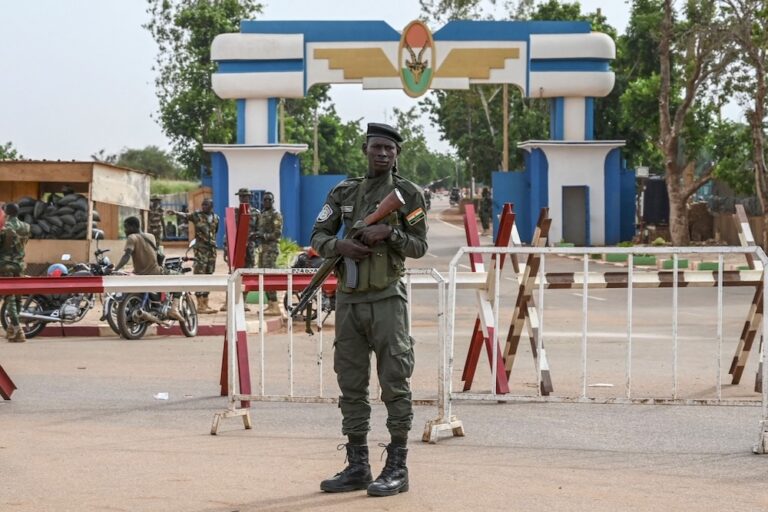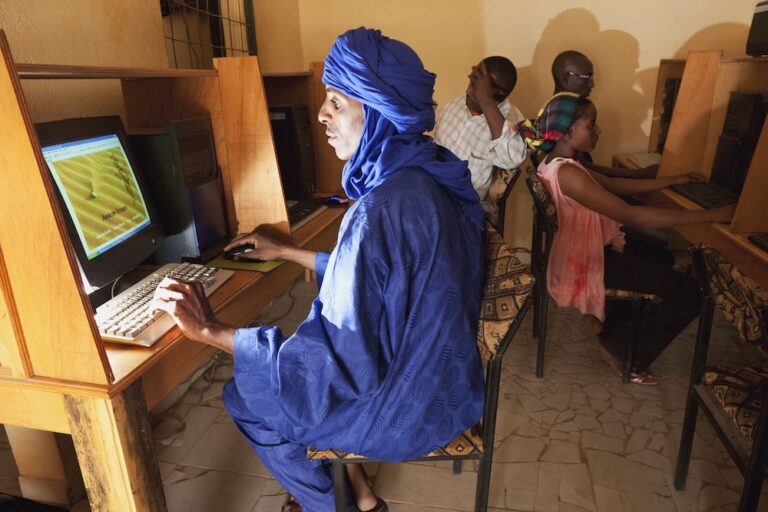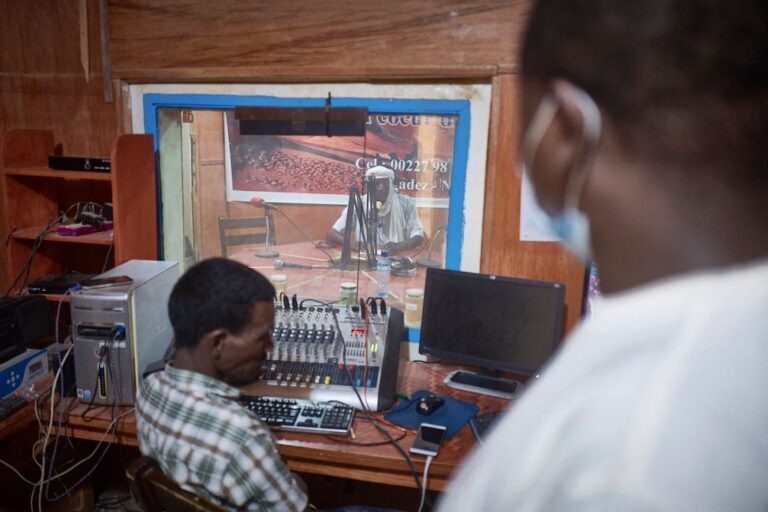(RSF/IFEX) – Boulama Ligari, a journalist with the private station Radio Anfani, was arrested by police officers in Diffa (1,500 km east of the capital, Niamey) on 27 August 2002. The authorities did not provide an explanation for his arrest, but according to several local sources, the journalist was reportedly arrested because of his reports […]
(RSF/IFEX) – Boulama Ligari, a journalist with the private station Radio Anfani, was arrested by police officers in Diffa (1,500 km east of the capital, Niamey) on 27 August 2002. The authorities did not provide an explanation for his arrest, but according to several local sources, the journalist was reportedly arrested because of his reports about a soldiers’ mutiny in Diffa in early August. Police officers have also been posted in front of the radio station’s offices in Diffa, but have not prevented Radio Anfani from broadcasting.
“To the best of our knowledge, this journalist was only doing his job. The authorities must cease harassing journalists who covered the mutiny,” stated RSF Secretary-General Robert Ménard in a letter to Prime Minister Hama Amadou. “Press professionals are not assistants to the police and should not be forced to hand over information to the police when they investigate political activities,” added Ménard. The organisation asked the government leader to do everything possible so that Ligari is released immediately. RSF also recalled that Niger has ratified the International Covenant on Civil and Political Rights, which guarantees freedom of expression.
On 23 August, Moussa Kaka, a local correspondent for Radio France Internationale and RSF and the director of the private station Radio Saraounia, was arrested and interrogated for almost 10 hours by the Niamey National Police Station’s High Command. The journalist was interrogated
about his sources for his reports on the mutiny.
In early August, following the mutiny, the president declared a state of alert in the country and introduced measures limiting press freedom and freedom of expression (see IFEX alert of 7 August 2002). A decree was passed banning “the dissemination, by any communications means, of reports or allegations liable to cast doubt on national defence operations.” The authorities threatened to punish journalists who did not respect the new measures.
RSF also recalled that another journalist has been imprisoned at Niamey’s civilian prison since 18 June. Abdoulaye Tiémogo, publication director of the satirical weekly “Le Canard déchaîné”, was sentenced to eight months’ imprisonment for “defamation” (see IFEX alerts of 4 July and 20 June 2002). Prime Minister Amadou filed a complaint against the journalist following the publication of three highly critical articles in “Le Canard déchaîné”. The journalist accused the government leader of seeking to bribe the speaker of the National Assembly in order to retain the post of prime minister.


